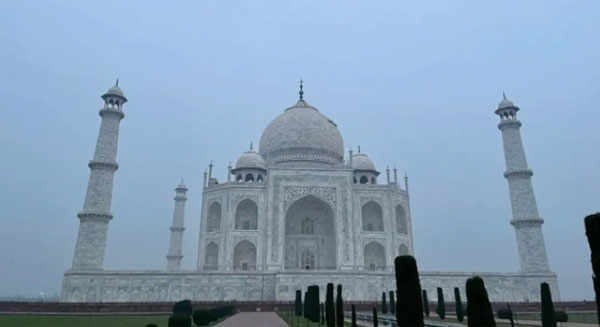
Officials from the Archaeological Survey of India have rejected rumours of "Hindu idols from ancient times" being present inside 22 "permanently locked rooms" inside the Taj Mahal.
The statements came in the wake of the Lucknow bench of the Allahabad high court rejecting a petition seeking a directive to the ASI to open the closed rooms inside the mausoleum.
Officials of the ASI told The Times of India that the contention in the plea is wrong on both counts. One, these rooms - officially called "cells" - are "not permanently closed" and they were only recently opened for conservation work. And two, being that all records scrutinised so far over the years "have not pointed to the presence of any idols".
"Various records and reports that have been reviewed till now haven't shown the existence of any idols," a senior official privy to the restoration work done three months ago told the publication.
"The petitioner's claim of 22 rooms being permanently locked is factually incorrect as conservation work, including filling of cracks, re-plastering and anti-ageing treatments, are periodically done. In fact, the most recent work cost us Rs 6 lakh," a senior ASI official said.
Another senior ASI official added that 100 cells in the complex that remain locked to the public are located in the basement, the upper storeys of the main mausoleum, the four minarets, inside the baolis (near the mosque) and on the Chameli floor on east, west and north sides. Besides these, several portions of the other world heritage sites in the region - Agra Fort and Fatehpur Sikri - have also remained closed to the public for years due to security reasons.
Several Hindutva outfits have claimed in the past that the Mughal-era mausoleum was a Shiva temple.





Comments
Add new comment